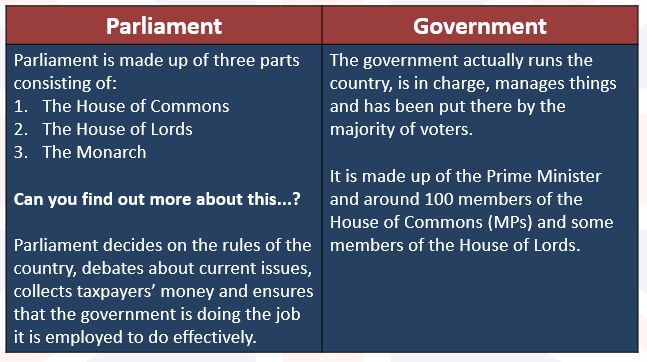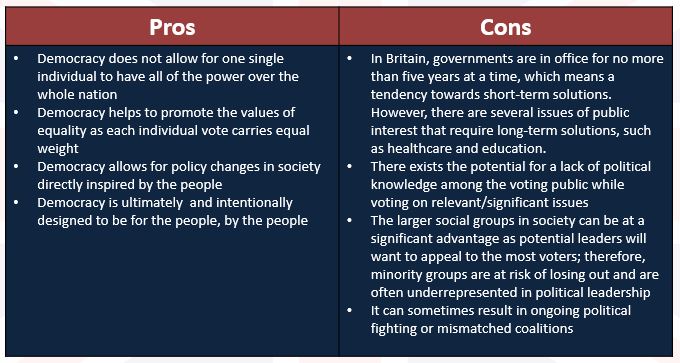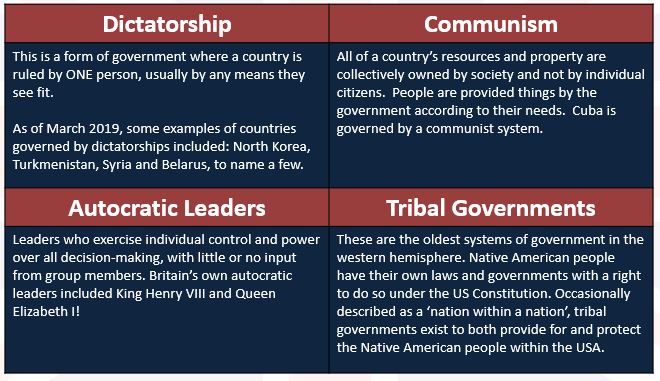Note that your final mark will not be saved in the system.
Having a Voice Having a Vote Notes
Page: Having a Voice Having a Vote
Activity
Pick eight of the following words that you think are closely related to the word ‘democracy’. Write down why you made those choices:
CARING FRIENDSHIP RESPECT RELIGION RESPONSIBILITY CITIZENSHIP
MONARCHY AGE PARLIAMENT
OPINIONS VALUES TRUST
LOVE VOTING FEELINGS
LADY MAYORESS / LORD MAYOR
Having a Voice – Having a Vote!
You may well be underage to vote but did you know that you are experiencing the basics of democracy in your everyday life?
- Listening respectfully to your classmate’s views...
- Being able to have your own say in school...
- Respecting a range of perspectives through debating life’s questions during lessons such as PHSCE and RE...
- You have a say on what goes on in your place of learning...
- You have a voice on the development of policies and the aims of your school/college...
- You vote for who represents you on your School Council...
What is Democracy?
Democracy is a type of government system that is ultimately voted for by the majority of voting people in the society that it is governing.
There is freedom for all citizens of a democratic society to stand as a candidate in government elections.
It is the duty of all citizens to take part in the democratic process by utilising the free and fair voting system. The majority vote determines which political party runs the government and the country it serves.
Tip
Democracy is ‘Having a Voice – Having a Vote’!
What is UK Democracy?
UK democracy is a ‘Representative Democracy’. This means that the citizens have chosen who should represent them to run the country on their behalf.
Key Dates in Modern Democracy
Before the Magna Carta in 1215, England was ruled by the monarchy (the king or queen). The Magna Carta in 1215 marked the first time that the monarch’s powers over the country were being limited.
From the year 1430 and for the next 400 years, only people who were landowners, or who rented land with a value of more than 40 shillings, were allowed to vote in elections, which by now contained representatives from citizens all across England.
In 1512, the Palace of Westminster became the permanent home of Parliament and it still is today.
The Bill of Rights in 1689 set out the new rights of Parliament in running the country, thus further limiting the powers of the ruling monarch.
Women were not allowed to vote in the democratic process until 1918, and even then they had to be over the age of 30! All men who were over 21 could vote. This went on until 1928, when all men and women over 21 years old could vote thanks to the Equal Franchise Act of 1928.
The age at which all British citizens could vote was lowered from 21 years to 18 years in 1969.
DID YOU KNOW...? If you live in the Isle of Man, Alderney or Jersey you can vote from the age of 16!

The British Monarchy
While kings or queens (monarchs) no longer have ultimate power over ruling the people of their country, they do play a pivotal role in Parliament.
Once a year, in autumn, the monarch opens the new session of Parliament at the Palace of Westminster, the home of Parliament.
The leader of the party that wins a general election, the prime minister (PM), is asked by the monarch whether they are able to run the country. The monarch would also be the one to receive the PM’s resignation letter should they wish to resign from the post.
When Parliament wants to pass a new law via a bill, the monarch has to give their ‘royal assent’ (approval) to turn a bill in to an Act of Parliament.
Democracy and Balanced Arguments
Democracy enables us to experience and/or listen to balanced arguments.
Gaining an understanding of different viewpoints is essential in helping you to make up your own personal conclusions in life.
We must respect others’ viewpoints even if we don’t agree with them. That in itself is a British value!
The Pros and Cons of Democracy
What do you think are the advantages and disadvantages of democracy?
Write down as many as you can think of. Next you will see some answers to compare to your own.


How Other Countries Around The World Are Governed…?
Task: What is a Fair Society...?
Many countries around the world aim for a society that is both equal and fair, treating everyone with the same respect and giving them equal opportunities while simultaneously respecting differences between human beings.
Decide on how you would design your own equal and fair society, with your own set of three to five British values.
- Who is in charge? How will you decide? What role(s) would you play?
- What is your group’s own set of British values? Will you use/alter any of the existing ones?
- How will you distribute your resources/wealth fairly?
- How will you agree laws and enforce them?
- What happens to lawbreakers?
- Does everyone have the same rights and freedoms?
Final Activity
List all the ways in which you get to have a voice and/or a vote at school, at home and in your community.
Or click 'Enter' key!